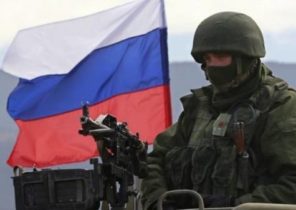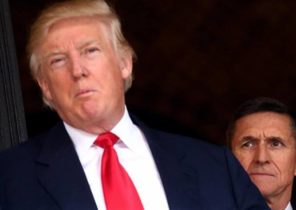
This question has long been before the Russian autocracy, no matter how he is serving the autocracy class. However, judging by nervous impulses emanating from the Russian ruling elite, it can be concluded that the process of existential enlightenment began.
After an unprecedented collapse in 1991 (in the absence of external and internal threats) autocracy managed to get out of the coma and even demonstrate viability. But today it is obvious that the Russian system was able to stand up, sitting down on the oil drug, and became its adrenaline-pumping fear — of both society and the ruling class and the world before the new collapse of global nuclear power. However, even in liberal circles there are still those who believe in “adaptive capacity” autocracy and even in his revisionist perspective. What: this belief (or hope?) quite natural because not all are willing to admit that they live in lost time and in the system anachronistic.
Meanwhile, on the surface of the hard break proof not only of the historical exhaustion of the Russian autocracy (it was obviously a long time), but that the system itself plays the dysfunctional, undermining its own support. Moscow “renovation” and “Plato”, recently awakened the dormant segments of the population, only the most obvious examples of the current tendency of Russian authorities to shoot yourself in the foot.
- Apparently, the government can not jump out of the crater that you dug and in which its deeper sucks — unfortunately, along with the country. List the main factors “explosion”, which creates the Kremlin, sinking in this “vortex of inevitability”.
- There are no legal channels of expression (through independent media, Parliament, local authorities and independent trade unions) makes street protest the only way of articulating the interests of society.
- Turning the elections into a simulation makes a public protest is the only means of upgrading the power. However, the update is through pressure from below with the discrediting of all political institutions can produce a new autocracy.
- Deinstitutionalization, that is, the transformation of all political institutions in a pathetic simulacrum destroys system of governance and accountability.
- The mantra of “no alternative” of Vladimir Putin, which has become the criterion for admission to the ranks of the political and business classes, does not allow for regime change as a way to maintain at least the appearance of viability of the system due to the new personalization of power.
- The transformation of the individual representatives of the ruling elite (Prime Minister, Dmitry Medvedev) in a pathetic characters discreditied not only a separate branch of government (in this case the government), but also shows the weakness of leadership, surrounded by vulnerable colleagues.
- Splicing repressive structures of the property undermines the efficiency of the power unit in the protection of both the state and the interests of the establishment. The irony is that the corrupt repressive tool is the gravedigger of any autocracy. I wonder: do they understand in the Kremlin?!
- “Landing,” governors and security forces in order to strengthen loyalty to the Kremlin from the political class make this loyalty is fake.
- The formation of “resource Ramzan Kadyrov” and giving him the right to play by the rules makes the leader of Chechnya in anti-system phenomenon, because not only undermines the elite consensus, but also blurs the Imperial power, which remains the core of Russian statehood. At the same time “resource Kadyrov” brings into play the independent ambitions of other national actors: “Why he can and can not we?”
- Attempt using elections to cement status quo, not giving way for a new public interest, raises doubts in the election of legitimacy. But in the absence of other forms of legitimation (ideological, monarchical) this leads to the risk of violent seizure of power.
- The failure of the “cerankosky thaw” (or, rather, its simulation) confirms not only the absence of the revisionist potential of the system. There is further evidence that the technocrats in Russia have become the main force in maintaining the breathing system obsolete (perhaps even more serious than the security forces).
- Monopoly privatization of state instruments and the budget of the “friends” of the President in response to the unity of the establishment, which is unlikely to be ready to sacrifice themselves for the welfare, and especially for the salvation of the “inner circle”.
- President, becoming the guarantor of the interests of the “inner circle” loses its role of the expression of national interests, thereby losing its “safety cushion”. His rating is still “catches” the trend, creating the illusion of mass support.
- The Kremlin, pushing out from the stage negotiability and ready for a peaceful transformation of power to the opposition, gives rise to a generation of bitter, which can legitimize themselves only through the revolutionary slogan “Down with!”
- The desire of the authorities to compensate for internal failures due to the aggressive foreign policy “without rules” and the Kremlin’s attempts to co-opt members of the Western elite are creating for Russia a hostile external environment, giving rise to the desire of influential political forces in the West to consolidate itself through anti-Russian consensus. It deprives Russia of the opportunity to use the resources of the West to maintain its economy.
At the time, the Argentine political scientist Guillermo O’donnell coined the term “impotent omnipotence”: autocracy, sooner or later is doomed to become decrepit and weak. It is this process of growing impotence of omnipotence begins in Russia. There are doubts about how Putin is able to play the role of an arbitrator in an internal power showdowns, not to mention his ability to solve common management problems, especially in times of crisis. It is difficult to avoid the impression that the President has become hostage to its own “vertical” — not even the indentured servants, and the mechanism of autocratic decision-making, which could not provide neither their adequacy, nor their feasibility. The “vertical” as a form of government, being the object of raider attacks from selfish private interests, beginning to destroy the foundations of statehood.
An explicit hope of the Kremlin on the decay and demoralization of society as an optimal environment for the preservation of power eliminates the chances of reform from above, reinforcing the threat to its crushing collapse. Here’s the irony: fear of a repetition of 1991, the power only brings him, but in a more unfavourable for himself, and for Russia situation.
The outbreak in Russia, deaf social ferment tells of the preservation of a society of drive. However, it is unclear how and when this drive will take the form of an organized system and not just a personalized Alternative. But the government tirelessly works on this Alternative, reinforcing its revolutionary beginning.







